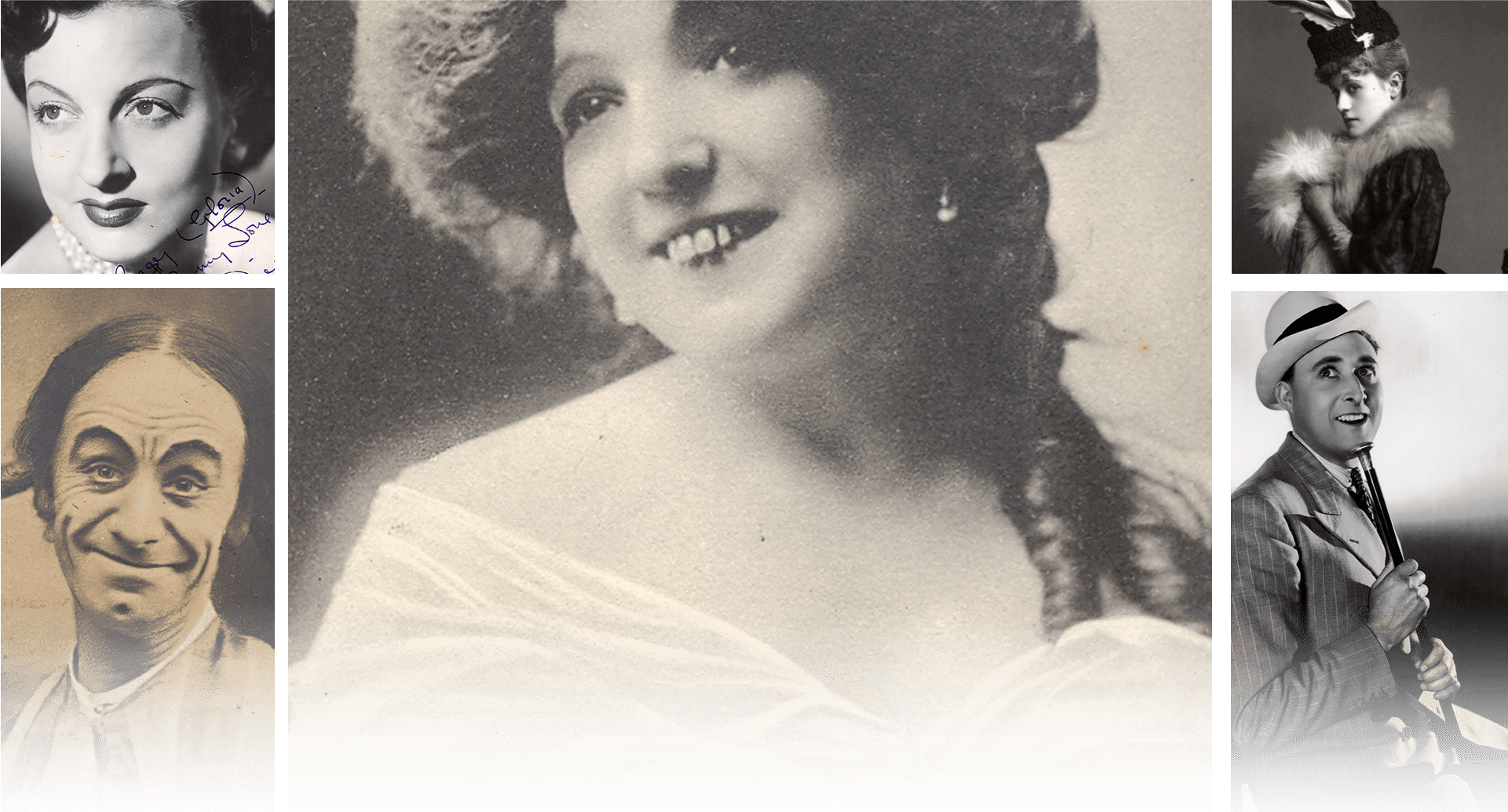



Orchestra Pits
by Firmin Shackleton
This article was first published in The Call Boy in December 1971 (Vol. 8 No. 4 pg. 21-22).
I don’t suppose many people, even hardened theatregoers have given much thought to that narrow strip of territory which divides the auditorium from the stage, and known generally as the orchestra well or pit.
In the – dare I say it? – good old days this was divided from the auditorium by a massive brass rail from which was suspended a heavy plush curtain impregnated with the dust of many years, and above which, as they made their entrances and exits, could be seen the luxuriant locks or the highly polished craniums of the members of the orchestra.
A mysterious place, the orchestra pit, and in my long professional experience of them all over the country, I have never met two alike; and how often in the semi-darkness (evoked by that autocratic member of the staff known as the chief electrician) have I stumbled out the orchestra and trod on the step which wasn’t there, or stubbed my toe on the one I didn’t expect to be there!
The first acquaintance I had with an orchestra pit was in 1890 at the Cardiff Empire when I was about four years old; my father was the flautist there, and I might mention here that I have still the letter written and signed by Oswald Stoll as he then was, offering my father the position of flautist at the salary of twenty-eight shillings a week, evening dress and white tie to be worn – this offer my father was pleased to accept and apparently throve on it, as apparently did my mother and I – but of course you will remember I mentioned earlier on, this was in the “good old days”, and this is meant sincerely!
My mother and I went nearly every week to the first house of Friday night at the Empire, when complimentary tickets were available to members of the orchestra, and we sat in the front row of the stalls as near as possible to my father, and it is on record that I once distinguished myself there during a very quiet part of the performance when the strings were playing very “con sordino”, when I noticed that my father was not playing, so I yelped out at the top of my voice, “Play Daddy, play!” – evidently I was determined that he should earn his twenty-eight shillings per week!
Then at the conclusion of the performance, and after “God Save the Queen”, had been played at the break-neck speed (Queen Victoria was then on the throne) came my most thrilling experience of the evening – my father would lift the thick plush curtain which divided me from the orchestra pit and I would dive under the rail and accompany him out of the orchestra into that mysterious and glamorous portion of the theatre underneath the stage.
Looking back after all these years I suppose it wasn’t really so glamorous – it was small and confined by wooden props and lit by dim “fish-tailed gas burners; most of the dressing rooms were down there, and I generally caught a glimpse of the last act (usually acrobats) coming down the narrow stairs with grease-paint stained towels around their necks and breathing heavily after their recent exertions, and frequently quarrelling amongst themselves as to who was responsible for a mishap in their routine.
Another feature of that gloomy place was a very big table-top supported on trestles, at which was usually a rather elderly man painting great strips of paper the words “The Empire,” in big blue block letters about four feet high, later to be pasted on various hoardings in the town. There were other visitors there, too – unwelcome ones, for my father more than once pointed out to me a great grey rat creeping along the low beams overhead.
But my visits there were very short, just long enough for father to put his hat and coat on, and then we would hurry out at the stage door where my mother would be waiting to take charge of me, whilst my father after a few hurried words would gallop madly across Queen Street to a favourite hostel to join the rest of the orchestra in much needed refreshment – playing the flute was very thirsty work in those days!
***
Firmin Shackleton (1886-1974) was a regular contributor to The Call Boy journal. He was born in Lancashire in 1886, the son of Musical Director Joseph Howard Shackleton (1863-1947). It is said that Firmin could play all the instruments in an orchestra bar the trombone. He started out as second violin in his father’s orchestra at the New Cross Empire. He went on to become a Musical Director in his own right, with appointments at the Southampton Hippodrome, the Ardwick Empire, the Boscombe Hippodrome and later commanding the orchestra at the Hackney Empire, where he remained for 21 years.



